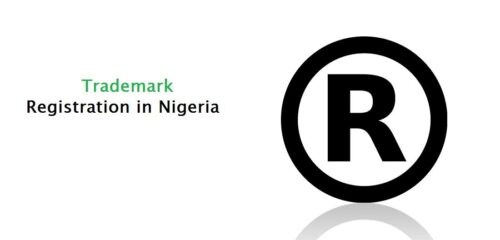
A REVIEW OF THE LAW AND ACCEPTABLE PROCEDURES OF CHILD ADOPTION AND GUARDIANSHIP
July 16, 2025
REGULATING FINTECH IN NIGERIA: BALANCING INNOVATIONS WITH RISKS MANAGEMENT
July 16, 2025Trademark Registration Nigeria
introduction
According to section 1 of the Trademarks Act, a trademark means any sign capable of distinguishing goods or services from other goods or services. An example of a trademark is a recognizable logo or design that identifies a particular product. Or
A trademark is a recognizable insignia, phrase, word, or symbol that denotes a specific product and legally differentiates it from all others of its kind. A trademark exclusively identifies a product as belonging to a particular company and recognizes the company’s ownership of the brand. Or
Trademark is a unique sign or mark that distinguishes the goods and services of one business from another. A mark can either be a device, brand, heading, label, ticket, name, signature, word, letter, numeral, or any combination thereof. Most businesses, companies or organizations have distinctive marks that set them apart from other businesses and they are considered as a form of intellectual property.
Having known what trademarks are about, we are going to move forward to understand what and how this term ” Trademark” can be used.
Understanding Trademarks
Trademarks not only help distinguish products within the legal and business systems, but they are used to identify and protect words and design elements that identify the source, owner, or developer of a product or service. They can be corporate logos, slogans, or the brand name of a product.
Benefits of Having or Using a Trademark
- To prevent others from using a company’s or an individual’s products or services without their permission.
- Trademark laws prohibit any marks that have a likelihood of confusion with an existing one. etc.
From the above we can see that under trademark that a business cannot use a symbol or brand name if it looks or sounds similar or has a similar meaning to one that’s already in the books especially if the products or services are related.
However, having gotten a trademark of your choice, you have to move further by making an application to Nigeria’s Ministry of Trade and Investment for proper registration. This was provided in Section 5 of the Trademarks Act.
Before a trademark application can be made, one needs to understand and know what can and what can’t be registered as trademarks.
What can be Registered
Any device, brand, heading, label, ticket, name, signature, word, letter, color mark, numeral, shape and packaging of goods, or any combination thereof, may be registered as a trademark. Three-dimensional marks are also eligible for trademark protection.
What cannot be Registered
Deceptive or scandalous marks or designs or marks that are likely to cause confusion are not eligible for trademark protection. Names of chemical substances and geographical names in their ordinary signification are also ineligible for trademark protection.
Requirements for Trademark Registration
- Applicant’s details (i.e., name, signature, nationality, and address): This is your application
- Details of the trademark.
- A representation of the mark.
- The classification of goods and/or services (Nigeria uses the Nice Classification of Goods and Services).
- A signed Power of Attorney.
Procedure for Trademarks Registration ( Trademark Registration Nigeria )
- Availability Search: The first step is to conduct an availability search at the Trademark Registry to ensure that there are no marks similar or in conflict with the proposed mark.
- Application: If there are no conflicts, an application for trademark registration is filed at the Trademark Registry. After submission of the application form and payment of the necessary fees, the Registrar issues an Acknowledgement Letter confirming receipt of the application.
- Acceptance: Where the application is approved on the grounds that the mark is distinctive, a Letter of Acceptance will be issued within one to three months by the Registrar of Trademarks.
- Publication and Certification: Upon the acceptance of the application, the Registrar ensures the notice of the application is published in the Nigerian Trademark Journal. The purpose of this publication is to notify interested parties who may have objections to the application. The opposition period is two months from the date of publication. Where there are no objections or where an objection raised has been upheld, the Applicant may proceed to make an application for the issuance of Certificate of Registration and subsequently, a Certificate of Registration would be issued by the Registrar of Trademarks.
It is pertinent to bear in mind that a trademark once registered is valid in Nigeria for an initial period of 7 years in the first instance and subsequent renewals are valid for 14 years.

Trademark Infringement ( Trademark Registration Nigeria )
A trademark is infringed when a person without consent from the trademark owner uses the mark or an identical mark in a way that is likely to deceive the public or cause confusion. Where such rights are infringed upon, the proprietor can institute an action in court for the infringement of such trademark. This was provided for under Section 5 (2) of the Trademarks Act 2004 which states that :
“Without prejudice to the generality of the right to the use of a trade mark given by such registration as aforesaid, that right shall be deemed to be infringed by any person who, not being the proprietor of the trade mark or a registered user thereof using it by way of the permitted use, uses a mark identical with it or so nearly resembling it as to be likely to deceive or cause confusion, in the course of trade, in relation to any goods in respect of which it is registered.”
And under trademark infringement, the court with jurisdiction to hear matters as regards trademark is the Federal High Court and the onus is on the proprietor to prove to the court that his or her right has been infringed upon.

Conclusion ( Trademark Registration Nigeria )
The benefit of trademark registration and infringement cannot be overemphasized in Nigeria, this is because not only will your trademark be protected under the law, but its registration will protect, identify and uplift the brands goodwill. Upon registration under the law, the owner can assign or transfer his or her trademark to another and generate revenue from it. Moreover, where there is an infringement of the registered trademark, the registered trademark owner could get injunctive order or damages against the infringer in court.
CLCIK THE LINK BELOW TO DOWNLOAD THIS ARTICLE
BY
CHIDINMA ESTHER STEPHEN Esq
READ ALSO
A REVIEW OF THE LAW AND ACCEPTABLE PROCEDURES OF CHILD ADOPTION AND GUARDIANSHIP


